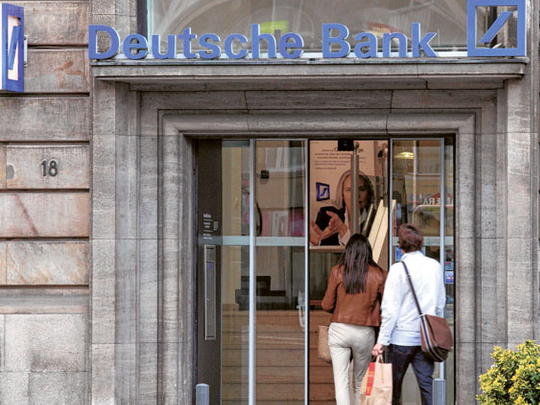
Frankfurt: The battle over the European Union’s first expansion of its carbon market abroad will continue for months and the inclusion of airlines into the program faces a “crunch” in April, according to Deutsche Bank AG.
The 27-nation EU decided in 2008 that flights to and from European airports should be included within the bloc’s greenhouse gas-reduction system as of this year after airline emissions in the region doubled over two decades. The enlargement of the European cap-and-trade programme triggered opposition from countries including the US, China and Russia.
“The politics and diplomacy around the inclusion of flights between the EU and third countries will likely continue for many months, with the moment of truth coming next April 30, 2013,” when airlines have for the first time to surrender EU or United Nations emissions permits against their emissions, Isabelle Curien, a Deutsche Bank analyst in Paris, said today in a research note.
International airlines in the EU greenhouse gas-reduction system face a cumulative net shortfall of 385 million carbon permits until 2020, according to Deutsche Bank’s base-case scenario. The whole EU emissions-trading program, which also covers manufacturers and utilities, may have a cumulative surplus of 1.264 billion metric tons of carbon permits by 2020, the bank said.
Free Permits
Carriers will be given for free emission permits making up 85 per cent of the industry cap in 2012 and will have to buy the remaining 15 per cent at auctions. They can also trade between each other.
Countries opposing the expansion argue Europe should let the UN’s International Civil Aviation Organisation, or ICAO, regulate greenhouse-gas limits for the industry.
The EU has said that while its law enables the exemption of incoming flights from a country if it implements “equivalent measures” to tackle pollution from aviation, the bloc won’t give up the inclusion of airlines.
Under a hypothetical scenario of excluding incoming flights from third countries, the cumulative deficit for airlines would shrink by 94 million carbon permits to 291 million and the whole EU emissions trading system would be oversupplied by 1.558 billion allowances by 2020, according to Deutsche Bank.
If the EU were to exclude both all incoming and all outgoing flights from third countries the deficit for the aviation industry would be 168 million tons and the surplus for the entire program would rise to 1.481 billion tons, Deutsche Bank estimated.
“Between the extremes of these two broad scenarios an ultimate potential compromise might be for the EU to include all emissions from flights entering and leaving the EU to the extent that the emissions from these flights occur within EU airspace while excluding from the scope of coverage the emissions of these same flights that occur outside EU airspace,” Deutsche Bank said.












